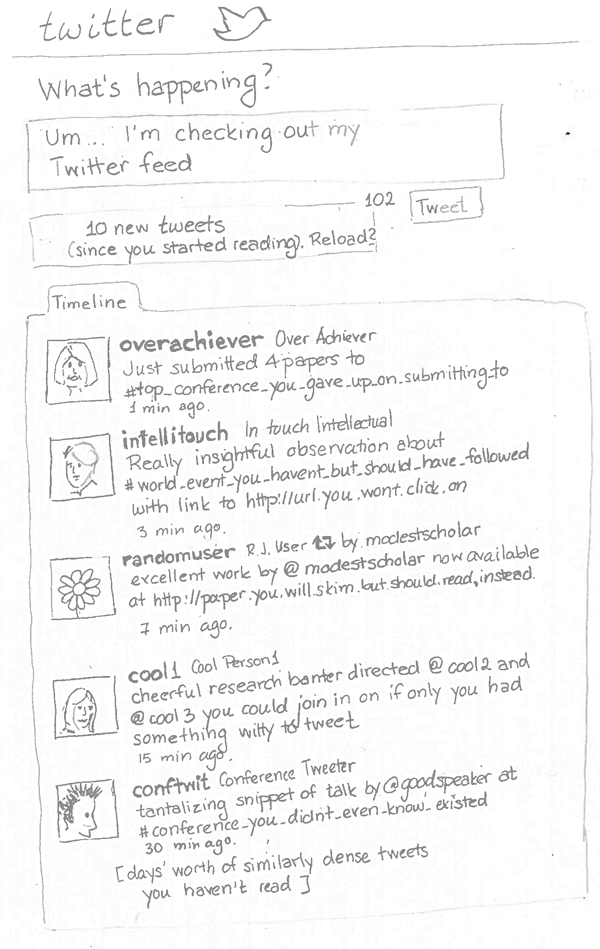Of course it has a role for easy, quick communication of relatively unimportant information but I fear that its very availability and ease means that like some kind of online kudzu it is expanding and driving out longer-form online discourse – particularly blogs. This is particularly problematic for academics like myself. It used to be that I would string together 500 words and more about an academic subject or something in the news and post it on my academic blog (okay, I admit I was a grad student with a bit more time on my hands) but now I tend to just tweet or Facebook post about it because the blog form implicitly demands more engagement than I feel I can give. It seems to me that possibly for similar reasons gradually nearly all of the blogs I used to read by fellow academics giving me their insights into trends and papers have died away*, replaced by tweets simply directing me to relevant web addresses.
Don’t get me wrong–I love to read and pass on the kinds of references to papers and to newspaper articles I get–see my twitter feed– but by the time a tweeter tells you who sent them a web address, very briefly summarizes why you might want to click and perhaps provides a hash tag to indicate its subject all that remains to be said is that said document or image is “enjoyable”, “provocative”, scary etc. A blog posting by contrast does not have to be that much longer but allows the writer to provide at least a little more context for the resource that they are talking about or indeed to provide a small but nonetheless useful addition to scholarly knowledge without all the psychic and administrative burden of turning out an academic paper.
Moreover, I have recently realised thanks to the news about Datasift providing companies with access to archives of tweets back to 2010 that although Twitter has kept everything, if I as a user ever did want to find an insightful tweet from even a week ago unless I had favourited it or I had been using third-party programs to archive a particular user or hashtag I would be out of luck. I always supposed that the limitations of search in tools like TweetDeck or Twitter.com itself were just a coding problem not reflective of an underlying technical problem.
* Mind you, this rant which I have been saving for a while now was inspired in part by the excellence of a Nathan Jurgenson blog post which reminded me that academic blog excellence is not yet dead.
The cartoon below (sorry have lost the original source) presents a number of other good reasons I dislike Twitter…


